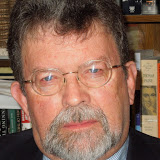P. M. Barford is less circumspect than Professor Plokhy. He asserts that it was only under the influence of Lithuanian and Lithuanian-Polish rule during the thirteenth to sixteenth centuries that people formerly considered to be Rus began to develop languages and identities that transformed them into Ukrainians and Belarussians (The Early Slavs, p. 270). Even then, Ukrainians were often known as Little Russians.
Of course, the rulers of present-day Ukraine dare not admit any of this. Which is why they are left with lying about the existence of a "Kievan Rus -- Ukraine." Having been late to develop as a nation and then finding themselves repressed and abused by the two superior cultures that ruled over them for centuries, the Polish and the Russian, Ukrainians have adopted the measures described by Ernest Gellner in an attempt create their own independent high culture.
According to Gellner, "Nationalism usually conquers in the name of a putative folk culture. Its symbolism is drawn from the healthy, pristine, vigorous life of the peasants, of the Volk, the narod. There is a certain element of truth in the nationalist self-presentation when the narod or Volk is ruled by officials of another, an alien high culture, whose oppression must be resisted first by a cultural revival and reaffirmation, and eventually by a war of national liberation. If the nationalism prospers it eliminates the alien high culture, but it does not then replace it with the old local low culture; it revives, or invents, a local high (literate, specialist-transmitted) culture of its own" (Ernest Gellner, Nations and Nationalism, p. 57).
Present-day Ukraine is in the process of inventing its own high culture. To do so, it must appropriate Prince Vladimir, simply because he ruled in Kiev. It enables Ukrainians to claim a distinguished pedigree, regardless of the actual history.
In addition to stealing from Russia's history, the authorities in Ukraine are attempting to rewrite the often ugly history of its fascists and Nazis. Thus, on 15 May 2015, Ukraine's President, Petro Poroshenko, signed laws that seek to "impose a sharp break between present-day Ukraine and its entire Soviet past, now deemed criminal," but also passed a law hailing "the Ukrainian Insurgent Army as freedom fighters." In fact, the Ukrainian Insurgent Army killed 70-100,000 Poles in an effort to cleanse Western Ukraine of non-Ukrainians (See Jochen Hellbeck, "Ukraine Makes Amnesia the Law of the Land: Poroshenko wants his nation to forget its role in Nazi atrocities," The New Republic, May 21, 2015).
At the same time Ukraine's rulers must continue their attempt to suppress the continued existence of Russia's superior culture by way of Ukrainization, which the country's Russians experience on a daily basis. First, they attempted to ban the use of Russian as an official language. Second, they insisted that all official documents be in Ukrainian. The reason is simple: in 2012 "60 percent of newspapers, 83 percent of journals, 87 percent of books and 72 percent of television programs in Ukraine"[were] in Russian" (Richard Sakwa, Frontline Ukraine, p. 59).
Yet, this does not look like it will end well. For, as Ernest Gellner also noted: "A territorial unit can only become ethnically homogenous " if it either kills, or expels, or assimilates all non-nationals. Their unwillingness to suffer such fates may make the peaceful implementation of the nationalist principle difficult" (p. 2).
(Note: You can view every article as one long page if you sign up as an Advocate Member, or higher).





